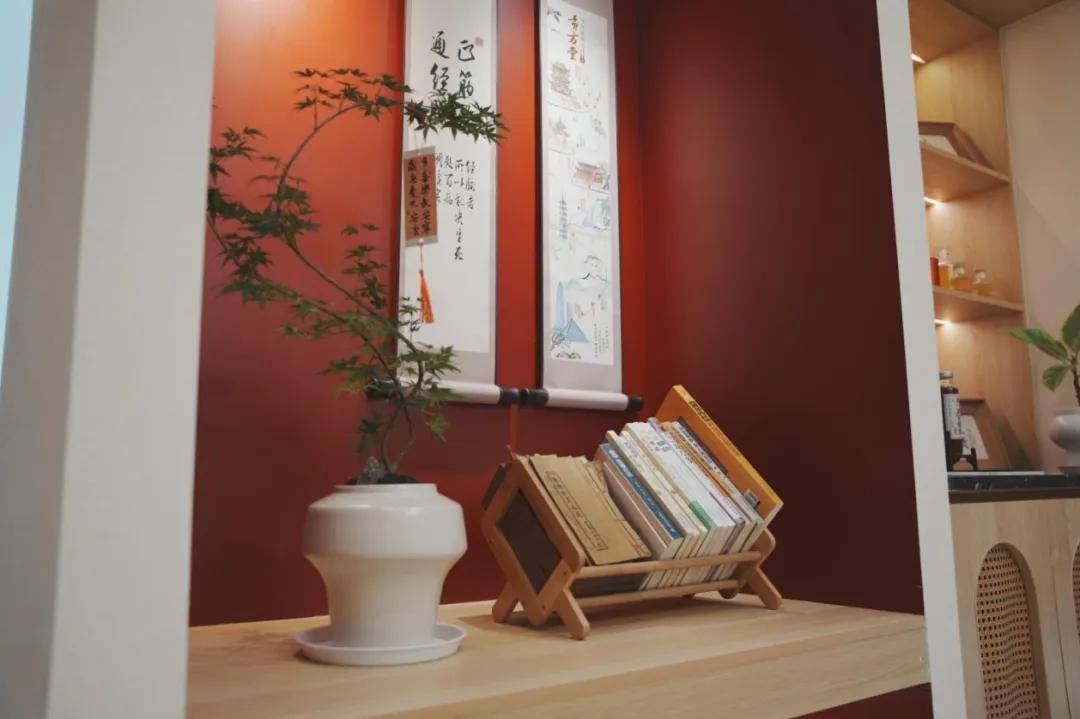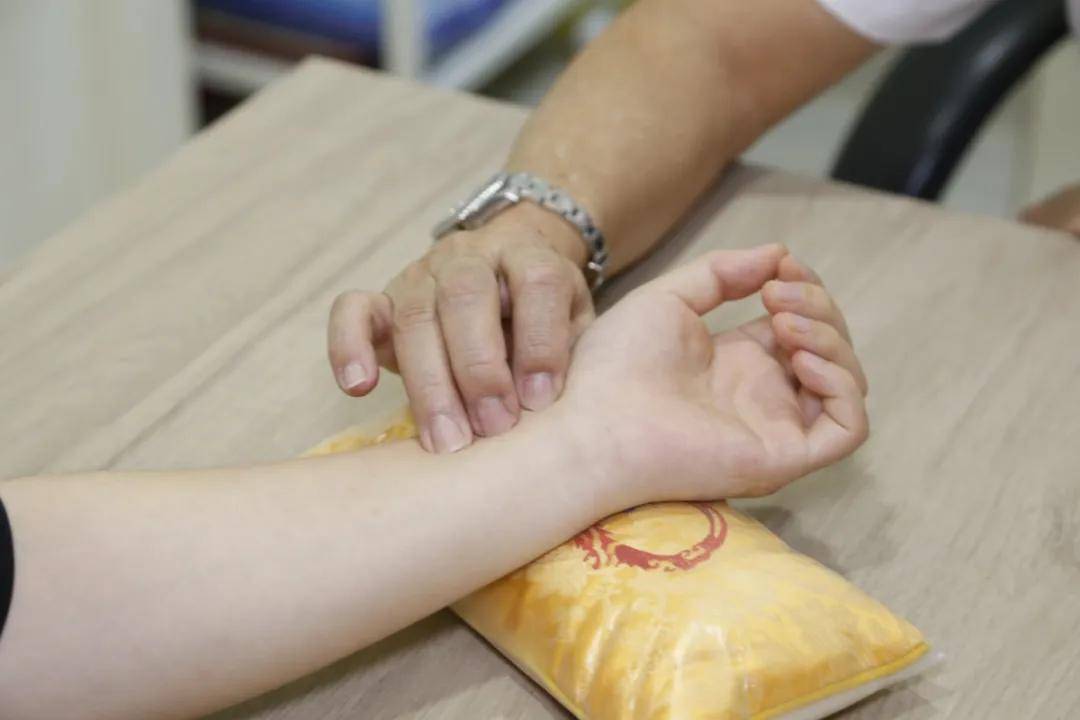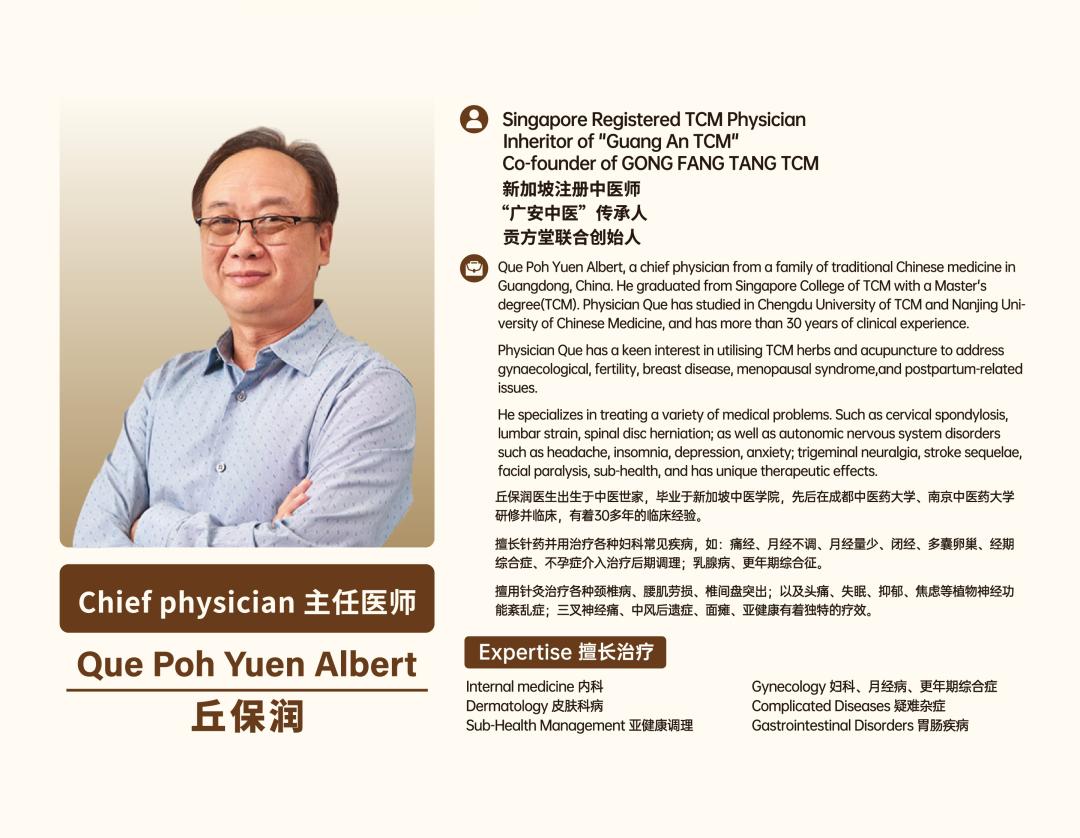Do you find yourself overthinking at night and unable to fall asleep no matter what? And when you finally do, you're plagued by nightmares and frequent awakenings? These could be classic signs of "anxiety-induced insomnia"!
In the fast-paced modern lifestyle, insomnia has become a common issue troubling many people.
When night falls, people should be able to sleep peacefully, yet they often toss and turn, struggling to fall asleep, or wake up frequently during the night—sometimes even waking up too early and being unable to drift back to sleep.
Over time, not only does it become difficult to restore energy, but it can also lead to various adverse effects on physical and mental health, such as weakened immunity, anxiety, and depression.
For chronic insomnia sufferers who may rely on sleeping pills long-term—potentially leading to side effects and dependency—Traditional Chinese Medicine (TCM), with its holistic approach of addressing both symptoms and root causes, offers an excellent alternative solution.
 Dr. Que Poh Yuen Albert, a TCM expert from Singapore's Gong Fang Tang, explains that in Traditional Chinese Medicine, normal sleep relies on the body's "balance of yin and yang," harmony of internal organs, and a calm mind, allowing the body's yang energy to properly settle into yin blood at night. Insomnia, also known as "sleeplessness," is a condition characterized by difficulty falling asleep or easily waking with vivid dreams, caused by yang failing to enter yin. Ancient medical theories often attribute it to dysfunction of internal organs, disharmony between nutrient and defense qi, and disturbance by pathogenic factors as the main pathological mechanisms.
Dr. Que Poh Yuen Albert, a TCM expert from Singapore's Gong Fang Tang, explains that in Traditional Chinese Medicine, normal sleep relies on the body's "balance of yin and yang," harmony of internal organs, and a calm mind, allowing the body's yang energy to properly settle into yin blood at night. Insomnia, also known as "sleeplessness," is a condition characterized by difficulty falling asleep or easily waking with vivid dreams, caused by yang failing to enter yin. Ancient medical theories often attribute it to dysfunction of internal organs, disharmony between nutrient and defense qi, and disturbance by pathogenic factors as the main pathological mechanisms.
Heart-Kidney Imbalance Type: Symptoms include restlessness, excessive dreaming, and soreness in the lower back and knees, commonly seen in mental workers.
Liver Qi Stagnation Transforming into Fire Type: Accompanied by irritability, anger, bitter taste in the mouth, and rib pain, often found in high-stress professionals.
Heart-Spleen Deficiency Type: Manifested as palpitations, poor memory, and loss of appetite, frequently occurring in postpartum women and those with weak constitutions.
Phlegm-Heat Disturbing the Heart Type: Yellow, greasy tongue coating, chest tightness, and heavy-headedness, mostly seen in people with irregular eating habits.

How to Treat Insomnia for Fast Sleep?
Refractory insomnia is often caused by a combination of psychological and environmental factors, leading to symptoms such as irritability, restlessness, anxiety, and anger. As Zhang Zhongjing described, the condition manifests as "mad-like behavior, erratic actions, and incessant talking," and is treated with Fangji Dihuang Tang (防己地黄汤), a formula known for its simplicity and efficacy.
The San Huang An Mian Tang (三黄安眠汤) is derived from three classical prescriptions: Banxia Shumi Tang (半夏秫米汤), Fangji Dihuang Tang (防己地黄汤), and the empirical formula Jiangcan Er Huang Tang (僵蚕二黄汤).
Banxia Shumi Tang (半夏秫米汤), originally called Banxia Tang, comes from Ling Shu: Xie Ke (《灵枢·邪客》). It treats insomnia caused by phlegm retention and stomach qi disharmony, with the text stating that "once yin and yang are unblocked, sleep comes immediately." The original formula consists of Banxia (Pinellia) and Shumi (glutinous millet). However, due to ongoing debate over the exact identity of Shumi, my teacher often substitutes it with Yiyiren (coix seed), leveraging its dual use as both medicine and food.
Fangji Dihuang Tang (防己地黄汤) is composed of Fangji (Stephania root), Guizhi (cinnamon twig), Fangfeng (saposhnikovia root), Gancao (licorice), and Sheng Dihuang (raw rehmannia). This formula originates from Jin Gui Yao Lue (《金匮要略》) and is described as treating "mad-like conditions"—not true madness, but the agitation and irritability caused by chronic insomnia. For such mental disturbances, this formula works gradually yet effectively, "removing the illness like unwinding silk."
Jiangcan Er Huang Tang (僵蚕二黄汤) is an empirical formula consisting of Zhi Jiangcan (baked silkworm), Jianghuang (turmeric), Tianzhuhuang (bamboo silica), Yuanzhi (polygala root), and Ye Jiao Teng (fleeceflower stem). The combination nourishes blood, calms the mind, dispels wind, and unblocks meridians.
By integrating these three formulas, we derive the highly effective San Huang An Mian Tang (三黄安眠汤) for refractory insomnia.
Composition:
Sheng Dihuang (raw rehmannia) 50g
Tianzhuhuang (bamboo silica) 12g
Jianghuang (turmeric) 10g
Fangji (Stephania root) 10g
Guizhi (cinnamon twig) 10g
Zhi Jiangcan (baked silkworm) 10g
Yuanzhi (polygala root) 12g
Banxia (Pinellia) 30g
Gaoliang (sorghum) 30g
Fushen (poria spirit) 10g
Shou Wu Teng (fleeceflower stem) 30g
Zhi Gancao (baked licorice) 10g
Chao Suan Zao Ren (fried sour jujube seed) 30g
Fangfeng (saposhnikovia root) 10g
Key Notes:
Sheng Dihuang must be used in large doses, typically no less than 50g. For patients with constipation or dry mouth, it can be increased to 60–120g.
Indications: Insomnia accompanied by dizziness, irritability, bitter taste in the mouth, palpitations, chest tightness, impatience, anger, dry stools, red tongue with yellow coating, and rapid or slippery pulse.
Not all symptoms need to be present, but this formula is particularly suitable for refractory insomnia with agitation and constipation.

Patient: Yang, female, 62 years old.
Condition: Suffering from insomnia for 40 years, with a 25-year history of taking diazepam (Valium).
For four decades, she sought treatment from dozens of doctors without success. As a last resort, she relied on diazepam—initially taking half a tablet nightly for 2–3 hours of sleep, but now requiring 2 tablets just to maintain 3–4 hours of restless sleep, leaving her in extreme distress.
Examination Findings:
Thin build, sallow complexion, visibly restless.
Subjective symptoms: Heat sensation in the chest, dry and bitter mouth, dry stools, palpitations.
Pulse: Thin and rapid.
Tongue: Red with thin, dry, yellowish coating.
Diagnosis: Insomnia due to phlegm-fire stagnation and heat disturbing the heart-mind.
Prescription: San Huang An Mian Tang (customized formula):
Sheng Dihuang (raw rehmannia) 60g
Zhi Jiangcan (baked silkworm) 10g
Tianzhuhuang (bamboo silica) 12g
Jianghuang (turmeric) 10g
Yuanzhi (polygala root) 10g
Fangji (Stephania root) 10g
Fangfeng (saposhnikovia root) 10g
Guizhi (cinnamon twig) 6g
Banxia (Pinellia) 30g
Gaoliang (sorghum) 30g
Shou Wu Teng (fleeceflower stem) 30g
Zhi Gancao (baked licorice) 10g
Chao Suan Zao Ren (fried sour jujube seed) 30g
Fushen (poria spirit) 20g
Wu Wei Zi (schisandra) 15g
Preparation: Decocted in water, one dose daily.
Follow-up:
On the first night, she fell asleep immediately at 11 PM and woke naturally at 6:10 AM, describing it as "the most comfortable sleep in decades."
The second night, she discontinued diazepam and still slept normally, with palpitations and chest heat resolving completely.
She stopped diazepam after 20+ years of dependency and continued the formula for dozens of doses, maintaining good sleep thereafter.
